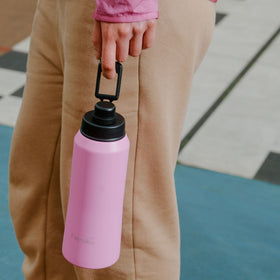
Natural Remedies for Common Breastfeeding Issues
Breastfeeding provides the best start to life for your new baby – but this natural process does not always come easy and minor problems can sure feel like major ones when you’re lacking sufficient sleep and clarity. So Hello Charlie has compiled a few natural remedies for mothers who may be faced with some common breastfeeding issues.

Low Milk Supply
Of the biggest concern to many breastfeeding mothers is low milk supply – cue sleepless nights wondering whether or not you are properly nourishing your baby. Of course, stressing about this issue is one of the most likely culprits to the cause of insufficient milk supply!
Fatigue and not drinking enough water are the other most common offenders, staying hydrated of which is the easiest contributing factor to fix. Nursing frequently assists with the supply of breast milk and is quite normal – babies digest breast milk quite quickly, in around 1.5-2 hours – and will also be going through growth spurts increasing the frequency and length of their feedings, which in turn increases your milk supply. It’s important not to panic about feeding your growing baby enough and don’t supplement their breastfeeds with formula as this will slow down your milk supply.
If you’ve tried doing nothing but lie in bed and nurse for three days and you’re still worried about low supply of breast milk, you could consult a naturopath about natural herbal remedies to help increase your supply. An herbal tea infusion of galactogogues such as fenugreek, shatavari, fennel seeds, hops, comfrey leaves, raspberry leaves, nettle and plenty more in the form of tinctures such as blessed thistle; aromatic seeds such as anise, cumin, fennel, caraway, coriander and dill; and a diet comprising of well-cooked foods rich in carotenes are all natural remedies to resolve issues of low breast milk supply.
Thrush
Thrush is a fungal infection that can affect the nipples and also your baby. It may be identified by severe, burning nipple pain or radiating breast pain but is easily identified by white spots in your baby’s mouth or a red rash on the buttocks. Using coconut oil on the nipple and baby’s mouth, reducing sugar and yeast in your diet, adding yoghurt, probiotics and good hygiene can offer natural solutions, however you may need to opt for an anti-fungal treatment if symptoms do not improve.
Cracked Nipples
Cracked nipples is another common issue with breastfeeding – you’d be forgiven for thinking it’s almost inevitable but it need not be and can be easily treated with a nipple cream containing calendula, like the one from Nature's Child. Calendula is a delicate anti-inflammatory herb for sore, cracked nipples doubling as a healing herb for cuts, sores and nappy rash.
Engorgement
Engorgement is where the breast becomes hard and difficult for your baby to latch onto the breast. Alongside regular feeding and expressing milk, one natural remedy is the cabbage leaf treatment. Studies have suggested that sulphur in amino acid methionine acts as an antibiotic and anti-irritant, drawing extra blood flow to the area which dilates capillaries and relieves inflammation, allowing milk to flow freely.
Mastitis
Mastitis is a bacterial infection in your breasts, which can be caused by cracked skin, clogged milk ducts and engorgement if these issues are not treated early enough. As antibiotic use will also affect good bacteria and that imbalance can lead to other side effects, natural remedies for mastitis include plenty of rest, heat compresses before nursing and cold compresses after nursing, massage, staying extra hydrated, raw garlic, Echinacea, Vitamin C, fermented cod liver oil and plenty of probiotics.
Whilst the issues described above are extremely common for breastfeeding mums and bubs, breastfeeding should be an enjoyable, pain-free experience for you both. Some of these issues can become serious infections, and not all cases can be helped with natural remedies. Always trust your instincts and speak with your doctor, midwife or health professional if you have any concerns at all. Further resources and support can be found at the Australian Breastfeeding Association’s website.










